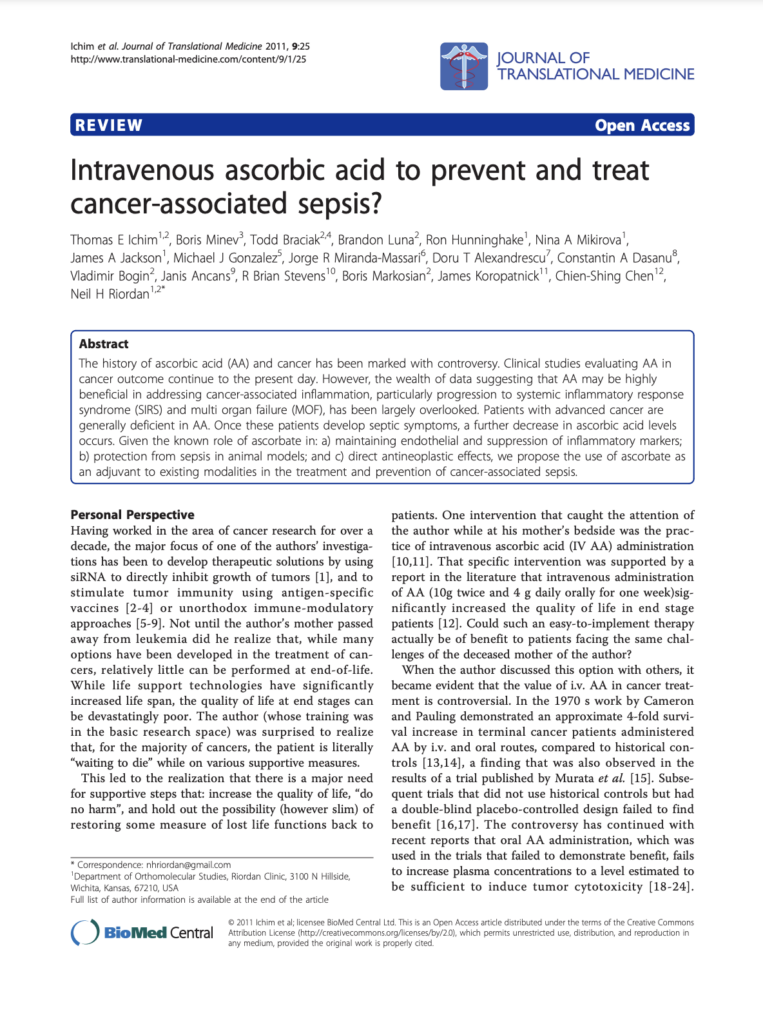March 2011
Intravenous ascorbic acid to prevent and treat cancer-associated sepsis?
Journal Citation
J Transl Med. 2011 Mar 4;9(1):25
Authors
Ichim TE, Minev B, Braciak T, Luna B, Hunninghake R, Mikirova NA, Jackson JA, Gonzalez MJ, Miranda Massari JR, Alexandrescu DT, Dasanu C, Bogin V, Ancans J, Stevens RB, Markosian B, Koropatnick J, Chen CS, Riordan NH.
Abstract
The history of ascorbic acid (AA) and cancer has been marked with controversy. Clinical studies evaluating AA in cancer outcome continue to the present day. However, the wealth of data suggesting that AA may be highly beneficial in addressing cancer-associated inflammation, particularly progression to systemic inflammatory response syndrome (SIRS) and multi organ failure (MOF), has been largely overlooked. Patients with advanced cancer are generally deficient in AA. Once these patients develop septic symptoms, a further decrease in ascorbic acid levels occurs. Given the known role of ascorbate in: a) maintaining endothelial and suppression of inflammatory markers; b) protection from sepsis in animal models; and c) direct antineoplastic effects, we propose the use of ascorbate as an adjuvant to existing modalities in the treatment and prevention of cancer-associated sepsis.

